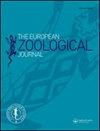墨西哥蜜蜂(膜翅目:蜜蜂科)病虫害存在与分布综述
IF 1.6
4区 生物学
Q2 ZOOLOGY
引用次数: 2
摘要
摘要欧洲蜜蜂是世界上地理分布最广的蜂种。它被认为是野生植物和农业作物以及蜂蜜、蜂蜡和蜂胶等蜜蜂产品的传粉通才。因此,它在世界生态系统、经济和粮食安全中发挥着极其重要的作用。然而,由于气候变化、栖息地丧失、农用化学品的使用以及新出现的病虫害等生物和非生物因素,意大利蜜蜂正面临种群数量下降的问题。害虫和疾病与一种被称为蜂群崩溃障碍(CCD)的现象直接相关,这种现象与全球每年数百万个蜂群的损失有关。一种特别重要的害虫是瓦螨,它已经广泛分布,被认为是养蜂业的主要威胁。在这篇综述中,我们汇编了关于墨西哥影响意大利蜜蜂的病虫害的存在和分布的文件。调查表明,存在以下害虫:破坏性瓦氏菌、木Acarapis woodi、图米达Aethina tumida、梅洛内拉Galleria mellonella,以及由深紫锥球菌、Paenibacillus幼虫、Vairimorpha(Nosema)apis、V.ceranae、Ascophaera apis和几种病毒引起的疾病。应该注意的是,欧洲蜜蜂病原体在墨西哥养蜂州的分布和存在并没有很好的定义,因为目前养蜂场或全国数据库中缺乏蜜蜂健康研究,无法快速更新其分布和发病率的信息。本文章由计算机程序翻译,如有差异,请以英文原文为准。
Presence and distribution of pests and diseases of Apis mellifera (Hymenoptera: Apidae) in Mexico: a review
Abstract The European honey bee, Apis mellifera L., is the bee species with the largest geographic distribution in the world. It is considered a pollinator generalist of wild plants and agricultural crops, as well as honey bee products as honey, beeswax, and propolis. For this reason, it plays an extremely important role in the world’s ecosystems, economy, and food security. However, Apis mellifera is facing population declines due to biotic and abiotic factors, such as climate change, habitat loss, agrochemical use, and emerging pests and diseases. Pests and diseases are directly associated with a phenomenon known as colony collapse disorder (CCD), which is linked with the loss of millions of bee colonies annually worldwide. One particularly important pest is the varroa mite, which is already widely distributed and is considered the major threat to apiculture. In this review, we compile documentation of the presence and distribution of pests and diseases reported to affect Apis mellifera in Mexico. Surveys demonstrate that the following pests are present: Varroa destructor, Acarapis woodi, Aethina tumida, Galleria mellonella, as well as the diseases caused by Melissococcus plutonius, Paenibacillus larvae, Vairimorpha (Nosema) apis, V. ceranae, Ascosphaera apis and several viruses. It should be noted that the distribution and presence of European bee pathogens throughout the beekeeping states of Mexico is not very well defined, due to the lack of current bee health studies in apiaries or nationwide databases to quickly update information on their distribution and incidence.
求助全文
通过发布文献求助,成功后即可免费获取论文全文。
去求助
来源期刊

European Zoological Journal
Agricultural and Biological Sciences-Animal Science and Zoology
CiteScore
3.10
自引率
5.60%
发文量
80
审稿时长
30 weeks
期刊介绍:
The European Zoological Journal (previously Italian Journal of Zoology) is an open access journal devoted to the study of all aspects of basic, comparative and applied protozoan and animal biology at molecular, cellular, tissue, organ, organismal, population, and community-ecosystem level. Papers covering multiple levels of organization and integrative approaches to study animal form, function, development, ecology, evolution and systematics are welcome. First established in 1930 under the name of Il Bollettino di Zoologia, the journal now has an international focus, reflected through its global editorial board, and wide author and readership.
 求助内容:
求助内容: 应助结果提醒方式:
应助结果提醒方式:


